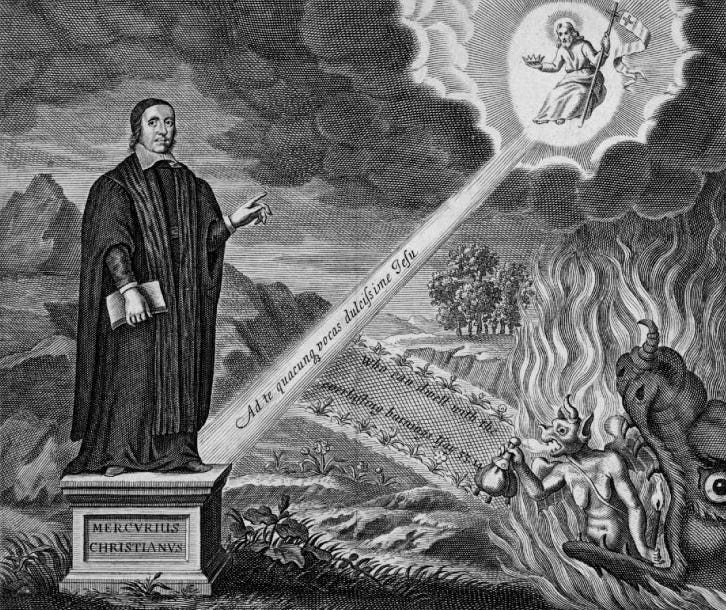Rules for hearing or reading the word of God
Jeremy Taylor (1613 - 1667), Holy Living – Chapter IV Section IV
Rules sell well, as Jordan Peterson knows. It seems that people like to be told what to do, in straightforward lists, more than they might acknowledge. Here are five from Jeremy Taylor (1613–1667), apt in light of last Sunday’s readings and collects. Taylor was, unusually in this Advent series, a Cambridge man, born, bred and educated. Taken under the wing of Archbishop William Laud, Taylor served as chaplain to King Charles I. An ardent royalist accused by some of crpyto-Catholicism, his association with the monarch and the High Church movement landed him in gaol during the turbulent beginnings of Cromwell’s Protectorate. On release, he set up a school with other deprived priests in Wales, becoming private chaplain to the second Earl of Carbery. From this place of exile where he offered no threat to the Puritan authorities, he was able to continue with his devotional writing, of which the below is an extract. After the Restoration of the monarchy and episcopate, Taylor was consecrated a bishop in Ireland. Oppression, imprisonment and banishment doubtless served him better in that ministry than than the insipid soup that dribbles from the Church of England’s “talent pools” and training courses today. Rather than clinging to the faded glories of privileges in a state which despises our creed and wants us to conform to its image, might we Christians accept our exile as manfully as Taylor, and take the restrictions and threats against us as a crucible for refinement of our souls? Follow his advice, find a spiritual guide or director, let God write the Scriptures on our hearts, and we have nothing to fear from the powers of this world. —T.P.
Rules for hearing or reading the word of God
1. Set apart some portion of thy time, according to the opportunities of thy calling and necessary employment, for the reading of Holy Scripture; and if it be possible, every day read or hear some of it read.
2. When it is in your power to choose, accustom yourself to those portions which are most plain and certain duty, and which contain the story of the life and death of our blessed Saviour. Read the gospels, the psalms of David; and especially those portions of Scripture which by the wisdom of the Church, are appointed to be publicly read upon Sundays and holidays, viz., the epistles and gospels. In the choice of any other portions, you may advise with a spiritual guide, that you may spend your time with most profit.
3. Fail not diligently to attend to the reading of Holy Scriptures upon those days wherein it is most publicly and solemnly read in churches; for at such times, besides the learning our duty, we obtain a blessing along with it; it becoming to us, upon those days, a part of the solemn divine worship.
4. When the word of God is read or preached to you, be sure you be of a ready heart and mind, free from worldly cares and thoughts, diligent to hear, careful to mark, studious to remember, and desirous to practise and to live according to it: do not hear for any other end but to become better in your life, and to be instructed in every good work, and to increase in the love and service of God.
5. Beg of God that He would, by His Spirit, write the word in your heart, and that you describe it in your life.
A Prayer to be said before the hearing or reading the word of God:
O eternal Jesus, let thy Holy Spirit be present with me in the reading or hearing Thy word, that I may do it humbly, reverently, without prejudice, with a mind ready and desirous to learn and to obey; that I may be readily furnished and instructed to every good work to the glory of Thy holy name. Amen.
Read more at http://www.lectionarycentral.com/advent2/Taylor.html





